The entrepreneurs fighting the war on plastic
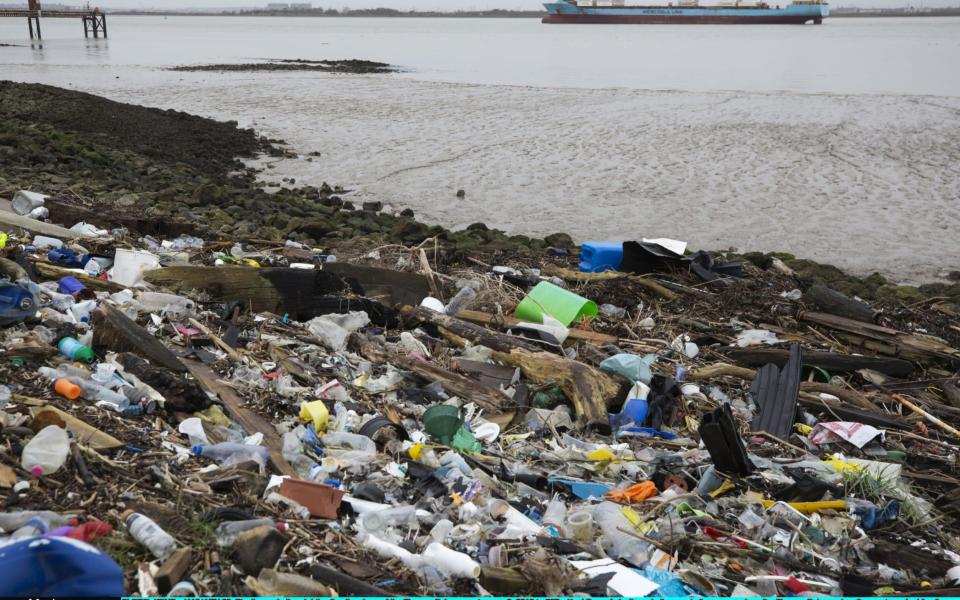
When Britain’s Cabinet ministers showed up for a meeting at Downing Street last week they were each presented with a gift from Michael Gove, the Environment Secretary: a reusable coffee cup.
“It’s very easy for people to be cynical of it,” admits David McLagan, founder of Ecoffee Cup, the brand Mr Gove opted for. The move certainly attracted plenty of snark on Twitter. But the column inches it attracted in the press could be beneficial for the business and its cause.
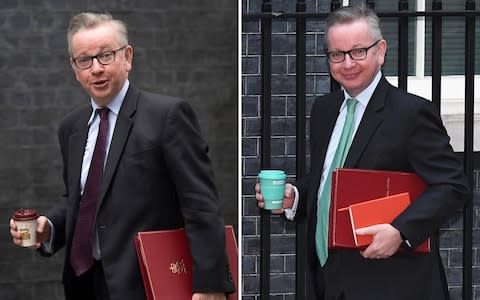
Not that the “war on plastic” is struggling for attention at the moment. Blue Planet’s images of albatrosses feeding their chicks toothpicks and turtles swimming among plastic sacks have taken recycling to the top of the political agenda.
Earlier this month Theresa May promised a new crackdown on plastic, extending the carrier bag charge to small retailers, banning single-use plastic from Government departments and encouraging supermarkets to create plastic-free aisles so environmentally conscious shoppers can steer clear of the now-loathed material. Britain isn’t the only country gripped by anti-plastic fever. In recent months the United Nations passed a unanimous resolution committing its members to eliminating plastic pollution in the oceans, the EU called for every piece of packaging produced by 2030 to be recyclable and China banned imports of waste materials. Last week Evian pledged to use 100pc recycled bottles by 2025 and the next day Coca-Cola said it aimed to collect and recycle all its packaging by 2030.

This war on plastic is likely to prove a headache for some companies. But it’s also set to boost other firms that are developing alternatives and finding innovative ways to turn waste plastic into something useful.
Ecoffee Cup is already growing apace. It sold 1m of its cups, which cost between £8 and £13, in 2016. McLagan says the company’s revenues are growing at 400pc per year. After the plastic bag charge reduced usage by 85pc, there’s talk of a “latte levy” on customers who don’t bring their own cups to coffee shops that would only boost the company further.
Disposable coffee cups have drawn criticism because they are hard to recycle. The plastic lining is glued to the paper outer layer, which means they can’t easily be separated. But some aren’t convinced reusable cups are the answer. “The take-up’s very low – the consumer wants something that’s easy,” says Martin Myerscough.
“You have to carry it around in your briefcase and remember to wash it out. It’s a faff.” Myerscough is the founder of Frugalpac, which has developed single-use cups that can be recycled with paper. They are lined with a removable plastic inner that floats out of the cups when they are pulped on arrival at a paper mill and are then recycled separately. Frugalpac has been in talks with Starbucks and hopes to run a trial with the coffee giant in the coming months.
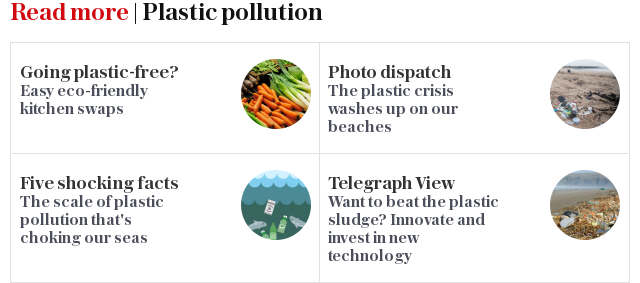
The plastic issue is much bigger than coffee cups, of course. Retailers and food service companies have all been under the cosh, leading Iceland to become the first supermarket to pledge to eliminate plastic on all its own-brand products within five years.
Such moves could prove rich pickings for companies that make plastic alternatives. Revenues at Vegware, which makes compostable plates, cutlery, and even transparent food containers reached £20m last year. Because its products are made of plant-based materials including sugar cane, they can be treated as food waste. That solves the problem of contamination, which can render soiled paper plates and greasy pizza boxes hard to recycle.
“If you’re a catering establishment, everything goes in the same bin,” says chief executive Joe Frankel. The company, which employs 60 in the UK, also operates a collection scheme called Close the Loop in Scotland, where it picks up companies’ bagged waste and takes it to be composted.
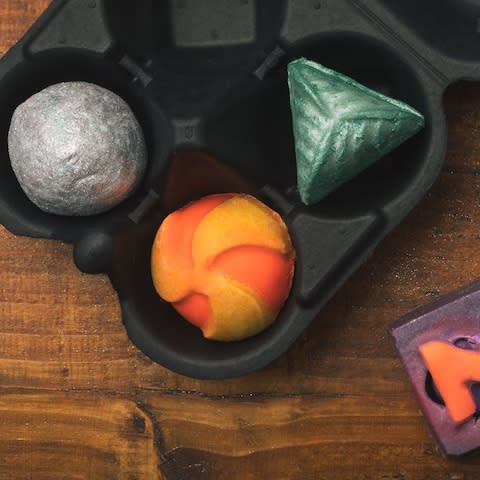
“Our materials do cost a bit more [than plastic],” admits Frankel, “but you have to think about total cost. What’s the downstream cost, what’s the environmental cost? Done right, there’s not really much of a cost impact of what we do.” Plant-based materials also feature in packaging made by James Cropper, whose clients include the beauty brand Lush.
The paper firm has developed a wood pulp-based rigid material called Colourform that can be moulded into custom-shapes such as the inserts that go inside boxes to hold products in place. Matthew Miller, who runs James Cropper’s packaging business, says the material is just as durable as plastic “in normal applications” but without the same environmental downsides.

Alternatives might be part of a long-term solution but in the meantime global plastic production continues to swell, reaching 322m tons in 2015 – a large chunk of which will be single-use and is therefore likely to end up in landfills or the sea if recycling rates don’t improve.
Keith Allaun hopes to put some of that excess to good use. His company, Powerhouse Energy, has developed a process for turning plastic, and other waste, into synthesis gas, or syngas, which can then be either used to generate electricity or converted into hydrogen and carbon monoxide, both of which have industrial uses. “We convert any waste plastic or tyres into small granules that we then run through an ultra-high temperature process that thermally degrades the material and converts it into an energy-rich gas,” Allaun says. “This is a completely closed cycle process that creates zero emissions.”
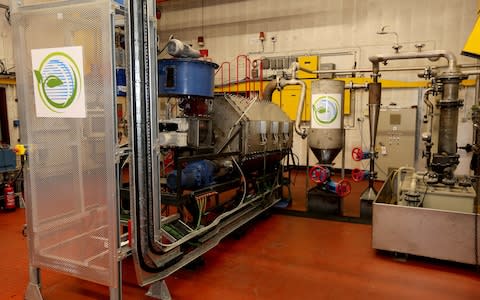
The AIM-listed company has a market cap of around £7m. It hasn’t brought the technology to market yet but hopes to be up and running by the end of the year. Rather than building one massive plant, the plan is to open hundreds of smaller sites in the long-term. Having facilities around the country would also be useful should hydrogen fuel cell cars, as tested by Toyota and Hyundai, take off, Allaun adds. “One of the biggest costs with hydrogen is transporting it”.
Another company that wants to use plastic to help motorists is MacRebur, which collects waste plastic from councils and turns it into a material that can be used to surface their roads.
Chief executive Toby McCartney came up with the idea after a trip to India where he saw people filling potholes with plastic bags and burning them to form a plastic filler. China’s decision to ban plastic waste imports has proved fortuitous for Macrebur, he says. “There’s now more waste plastics than any of the councils know what to do with, and we’re able to take that problem away from them.”
After collecting the plastics, MacRebur cleans and sorts them before turning them into flakes and pellets that can then be blended, depending on what types of plastic they contain, into the right formulations. Those are sold to the likes of Tarmac and Aggregates Industries to be used in asphalt production.
The war on plastic is only going to be won through shock and awe
Powerhouse Energy's Keith Allaun
None of these entrepreneurs is naive enough to think they can clean up the oceans or significantly cut waste on their own. With plastic production rates still going through the roof it’s going to take a mixture of political action, consumer interest and all sorts of businesses and technologies – that is if we can solve the problem at all.
“I’m not confident that even if we had 1,000 MacReburs in the UK that we would be able to solve the problem,” admits McCartney. “I think people have vastly underestimated the problem of waste plastics that we have in the UK and the world. Someone needs to take a stand and do something about it.”

 Yahoo Finance
Yahoo Finance 